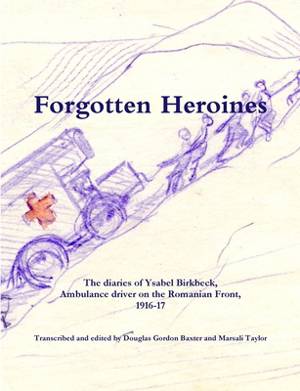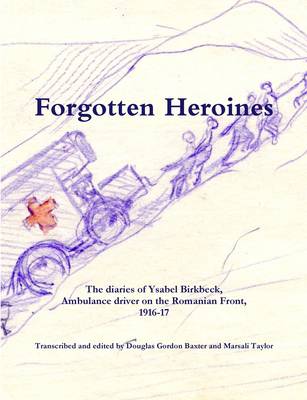
- Afhalen na 1 uur in een winkel met voorraad
- Gratis thuislevering in België vanaf € 30
- Ruim aanbod met 7 miljoen producten
- Afhalen na 1 uur in een winkel met voorraad
- Gratis thuislevering in België vanaf € 30
- Ruim aanbod met 7 miljoen producten
Zoeken
€ 29,45
+ 58 punten
Omschrijving
In August 1916, 75 intrepid women set out from Liverpool for the Russian Front. They were a unit of the Scottish Women's Hospital, led by Dr Elsie Inglis. They would form two front-line medical units, attached to the Serbian army. This diarist, Ysabel Birkbeck, was one of the ambulance drivers, and she recounts their work and fun with honesty and humour: the long journey by ship, train and barge to Medjidea, the work of moving injured men across trackless country, excursions on horseback, including a trip to the front lines, and the first chaotic retreat across the Danube. After a brief rest, it was back to work, until the whole Allied army retreated from Romania, with the SWH ambulances in the rear, picking up the wounded. They went on to Odessa, where they worked on their cars, and Birkbeck was sent by train to Reni with supplies. As the roads iced over, the few remaining drivers were granted leave, only to find themselves returning via the Russian Revolution in Petrograd, March 1917.
Specificaties
Betrokkenen
- Auteur(s):
- Uitgeverij:
Inhoud
- Aantal bladzijden:
- 244
- Taal:
- Engels
Eigenschappen
- Productcode (EAN):
- 9781291629750
- Verschijningsdatum:
- 6/03/2011
- Uitvoering:
- Paperback
- Formaat:
- Trade paperback (VS)
- Afmetingen:
- 189 mm x 246 mm
- Gewicht:
- 439 g

Alleen bij Standaard Boekhandel
+ 58 punten op je klantenkaart van Standaard Boekhandel
Beoordelingen
We publiceren alleen reviews die voldoen aan de voorwaarden voor reviews. Bekijk onze voorwaarden voor reviews.











